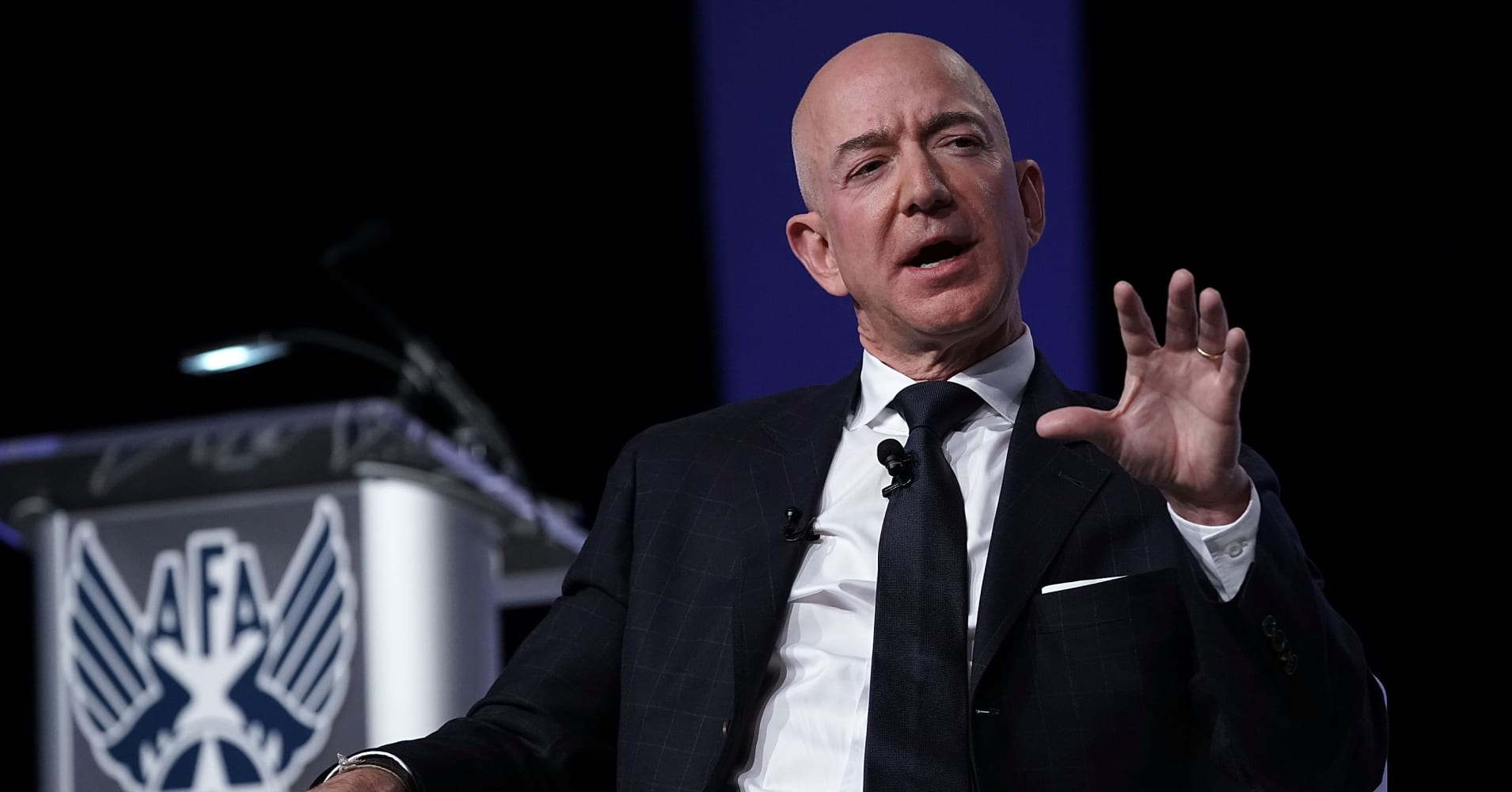
Alex Wong | Getty Images
Amazon CEO Jeff Bezos, founder of space venture Blue Origin and owner of The Washington Post, participates in an event hosted by the Air Force Association September 19, 2018 in National Harbor, Maryland.
Amazon CEO Jeff Bezos thinks it’s wrong to be so fearful of his company’s outsize presence. He may have a point.
At an internal all-hands staff meeting last March, an employee asked Bezos about the growing fear over Amazon potentially killing competition in many different industries, according to a recording CNBC has heard.
The questioner noted that as the e-commerce giant has expanded into almost every major business category, some of Amazon’s partners and customers have started to express their concerns.
Bezos responded that those concerns are raised “all the time” and often gets exaggerated because it’s a “juicy” media story. He laughed at the fact that some company stocks even dropped on rumors of Amazon getting into a new field, shrugging off those effects as “very short term.”
“In real life, there’s room for lots of winners,” Bezos said, in a recording of the meeting that CNBC has heard. “In fact, the sky does not fall for these companies.”
He appears to be right.
Fears of Amazon taking over the world have reached a fever pitch in recent years. In the fourth quarter of 2017, Amazon was the most mentioned company on earnings calls of S&P 500 companies. But some of Amazon’s primary competitors are finding ways to survive and even thrive against one of the most valuable companies in the world.
Walmart reported strong earnings this week, powered by robust growth in its online business that directly competes with Amazon. On Monday, Amazon’s studio boss, Jennifer Salke, acknowledged the challenges in its film business that saw six straight box office flops. Meanwhile, Microsoft is proving to be a formidable competitor in the cloud industry and Google is narrowing Amazon’s lead in the voice assistant space.
Companies in some of Amazon’s newer businesses — across shipping, healthcare, and groceries — all remain little affected by Amazon’s presence so far.
In fact, of the 65 S&P 500 components that mentioned Amazon during earnings calls in the fourth quarter of 2017, 35 outperformed the broader market in 2018.
“There’s an overestimation of Amazon’s potential to ‘crush’ competitors,” said Charles Hill, a business professor at the University of Washington. “It’s kind of an irrational fear of big business.”
An Amazon spokesperson noted that the company is diverse, and faces lots of competition in each of the businesses it’s in. Even in e-commerce the company’s largest business, “we represent less than 1% of global retail and less than 4% of U.S. retail,” Amazon noted.
Be the first to comment